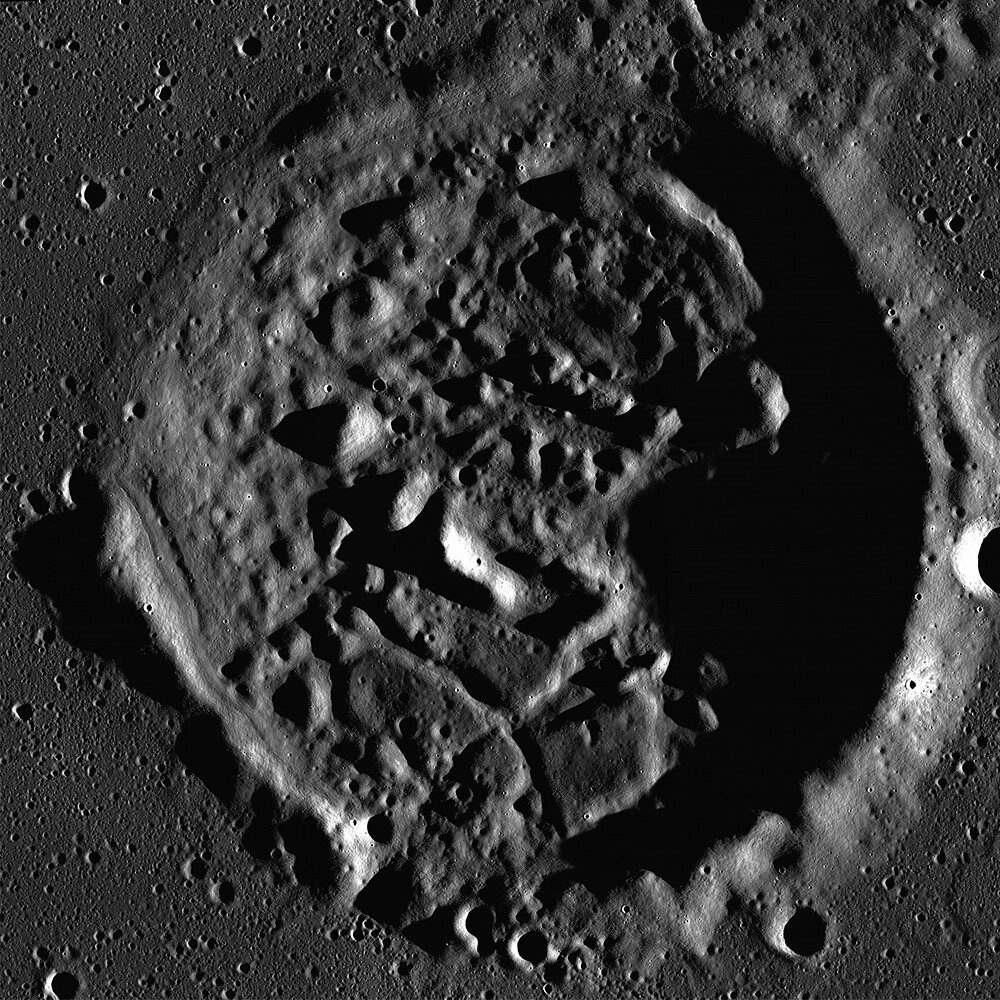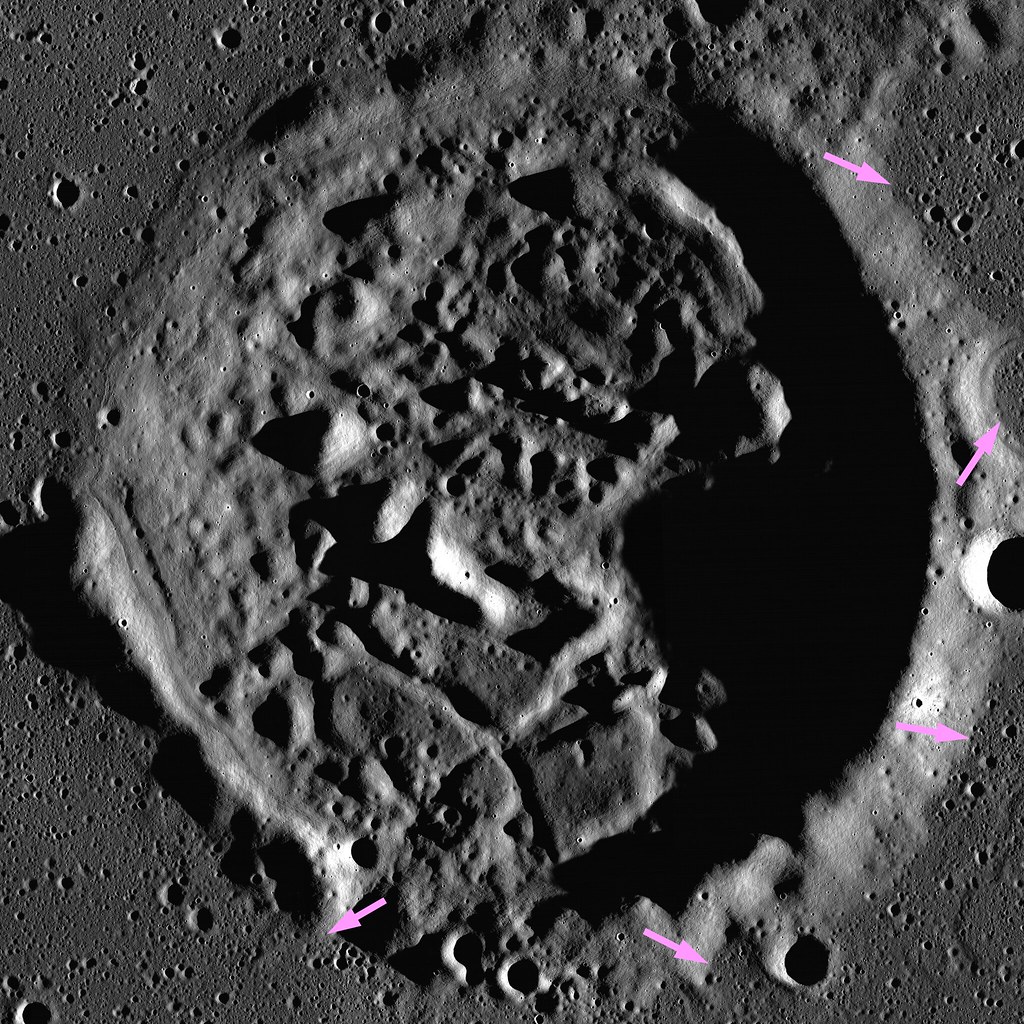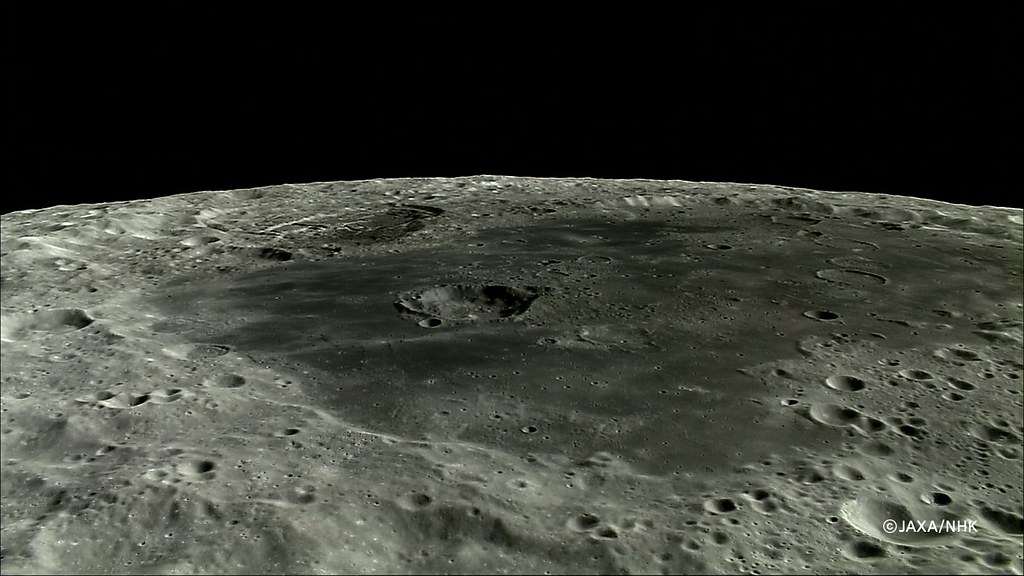 |
| Morning light beams over the walls and peaks of an irregularly shaped crater in Mare Moscoviense. This unnamed crater is approximately 17 km in diameter; portion of controlled NAC Mosaic MOSCOVNSLOA, downsampled for web browsing [NASA/GSFC/Arizona State University]. |
J. Stopar
LROC News System
This crater is one of several similarly shaped craters in Mare Moscoviense. These craters are pockmarked by craggy peaks and fractured floors. The dramatic illumination in the opening image, with the sun low on the horizon, exaggerates the crater's lumpy topography.
This crater, and others like it, represent one type of volcanically modified impact crater. The floor of the crater, shown in detail below, is not much below the surface of the surrounding volcanic plains, and looks nothing like a typical fresh impact crater, such as Giordano Bruno or simple bowl-shaped crater like this one on the farside. Sharp boundaries with flat-lying mare basalts around the crater rim (arrows) indicate where the crater was once surrounded (embayed) and nearly covered by large outpourings of lava. Only the upper part of the crater rim remains.
 |
| Unnamed 17km diameter crater in Mare Moscoviense, located at 146.391°E, 26.805°N. Arrows indicate extent of mare embayment. Click on the image for a higher resolution view of the crater floor [NASA/GSFC/Arizona State University]. |
How did this crater get so lumpy inside? Did volcanic materials push up from beneath the crater floor? Did molten lava intrude through fractures or low points in the crater rim and walls? Did the heat of nearby lava and magma deform the crater like hot plastic? The answer may be a combination of these processes, though most scientists think that the changes in crater shape occur mainly as a result of magma intruding from below.
 |
| HDTV still from Japan's lunar orbiter SELENE-1 (Kaguya) show the horizon to horizon extent of Mare Moscoviense, now known to be an unusually thin part of the Moon's crust in the farside lunar highlands. The view is from the north, from an altitude of about 100 km. The wallpaper-sized original can be viewed HERE [JAXA/NHK/SELENE]. |
Explore this crater and two more like it in entire NAC mosaic, HERE.
Re-visit these other volcanically modified impact craters:


No comments:
Post a Comment